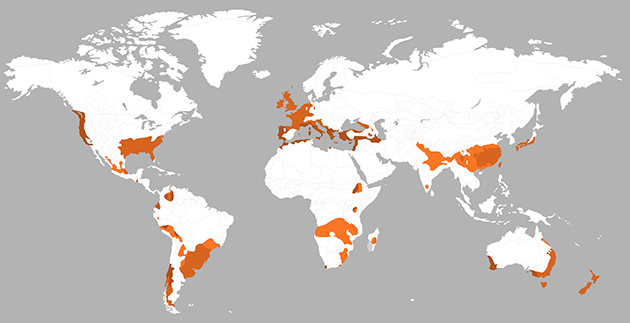 © Richard Leeney - British Land
© Richard Leeney - British Land
PROJECT INFO
Building type:
Mixed-Use
Year:
2008
Project Status:
Built
Gross Area:
106409 Sqm
Certificates:
BREEAM 2005 UK New Construction Excellent
Climatic zone:
Temperate
MY LAST SEEN PROJECTS
PROJECT DESCRIPTION
The Broadgate Tower and 201 Bishopsgate stand prominently within the renowned Broadgate business district in the City of London. SOM has been active in the district since it began to take shape in the 1980s, designing public space enhancements and many key buildings.
At 33 stories, The Broadgate Tower ranks among London’s tallest structures. The office building features double-deck elevators and, thanks to side-mounted cores, desirable open floor plates. Located near Liverpool Street Station, the tower was built above rail tracks and shares a 2.3-acre deck with 201 Bishopsgate, its shorter counterpart. Structural steel struts crisscrossing the glass facades of both buildings give them a rigorous, expressive quality.
A covered passageway with shops and cafes stretches between the two structures. Trees in and around the galleria help create a relaxed atmosphere. Sustainable features in both buildings include heat-recovery systems and lighting that dims in response to daylight levels.
AWARDS
1992 Unbuilt Design Award: Honor Award AIA – Chicago Chapter
2010 New City Architecture Award - Worshipful Company of Chartered Architects
2010 Divine Detail Award: Special Recognition AIA – Chicago Chapter
2009 Building Excellence Award: Best Structural Engineering Innovation – London District Surveyors Association
2009 Best Commercial Building: Over £1M LABC
2009 Award for Commercial or Retail Structures: Commendation – Institution of Structural Engineers
2009 Best tall Building Europe – Council on Tall Buildings and Urban Habitat (CTBUH)
1992 Unbuilt Design Award: Honor Award AIA – Chicago Chapter
SUSTAINABILITY FEATURES
Ventilation + Heat recovery
Innovative cooling system
High efficient façade
Water-saving sanitary appliances
Low-emitting materials and finishes
High efficient lighting
Daylight sensors
Occupancy sensors
SUSTAINABILITY STRATEGY
A strong focus on integrating sustainable features throughout the design and the construction of the Broadgate Tower has resulted in a highly efficient building without compromising operational performance. To reduce energy consumption, several provisions were incorporated into the design, such as:
- Water cooled chillers with centrifugal variable speed drives and associated cooling towers for heat rejection;
- High efficient chillers with a low turn down ratio to enable benefits of chillers to be passed onto the tenant in all operating conditions:
- Heat recovery from office ventilation plant using thermal wheels, taking advantage of the heat gains in the office space and reducing the requirement for heating air from the outside;
- Variable speed drivers fitted to all pumps and fans;
- Fan coil units with EDC motors and providing variable speed control matched to cooling load;
- Office lighting to have dimming, presence and daylighting control;
- Energy metering of chilled water, hot water and electrical services to each floor, and
- A comprehensive building management and monitoring system.
The low-E coated glass (low emission glass with a microscopically thin coating of metal oxide) used for the external facades reduces solar gain and keeps cool air inside, thus decreasing the need for cooling and almost eradicating heating requirements.
Further energy savings are achieved through the use of double deck, which require a single, larger, more efficient lift motor to carry two cars of passengers simultaneously, thus halving the number of motors required.
A building user guide is provided to ensure that occupiers operate in the building as efficiently as envisaged. Features such as local lighting zones, water metering and electricity sub-metering allow occupiers to take control of their own work environment.
The development provides and innovative and elegant response to complex site constraints while delivering buildings that reflect the commitment of both client and architect to a sustainable and environmentally sound future.
Source: Council on Tall Buildings and Urban Habitat
ENERGY DATA
Energy consumption:
N/A (N/A )
Consumption type:
Simulated
Annual carbon footprint:
32.50 KgCO2m² (349.827 KgCO2/ft²)
Climate zone:
Temperate
Min. temperature =
N/A
Max temperature =
N/A
RH =
N/A

CLIENT
Client:
British Land
DESIGNERS
Architect:
Architect:
SKIDMORE, OWINGS & MERRILL LLP , Jeffrey McCarthy , Adrian Smith , William Baker , Graham Wiseman , Lynn Boeke , Timothy Poell , Nada Andric , Richard Smits , Ronald Johnson , Faisal Mohsin , Tony Trifiletti , Eunjung Cho Chung , Lin Kim , Bozena Drzystek , Matthew Staublin , Thomas Kinzl , Matthew Allen , John Sleep , Ioannis Divanis , John Gislason , John Sleep , Harry Lee
CONSULTANTS
Acoustical consultant:
Sandy Brown Associates
Building services engineer:
Jaros, Baum & Bolles
Cost consultant:
Davis Langdon
Development manager:
M3 Consulting
Lighting consultant:
Maurice Brill Lighting Design
Specialist consultant:
EDCO Design , Lerch Bates & Associates , Warrington Fire Research Consultants
Structural Engineer:
CONTRACTORS
Contractor:
Bovis Lend Lease
Sub contractor:
Szerelmey , Seele Austria
Supplier:
Lindner , Excelsior Steel Processing , Kone , Josef Gartner , Trelleborg
OTHER PROJECTS BY TEAM
SIMILAR PROJECTS

.jpg)
.jpg)





Via Cesare Cantù, 2, 20123 Milano MI, Italia | 2019

Via Cesare Giulio Viola, 68, 00148 Roma RM, Italia | 2015

Via Pietro Borsieri, 2a, 00195 Roma RM, Italia | 2018


Corso Ercole I d'Este, 15, 44121 Ferrara FE, Italia | 2018
.jpg)